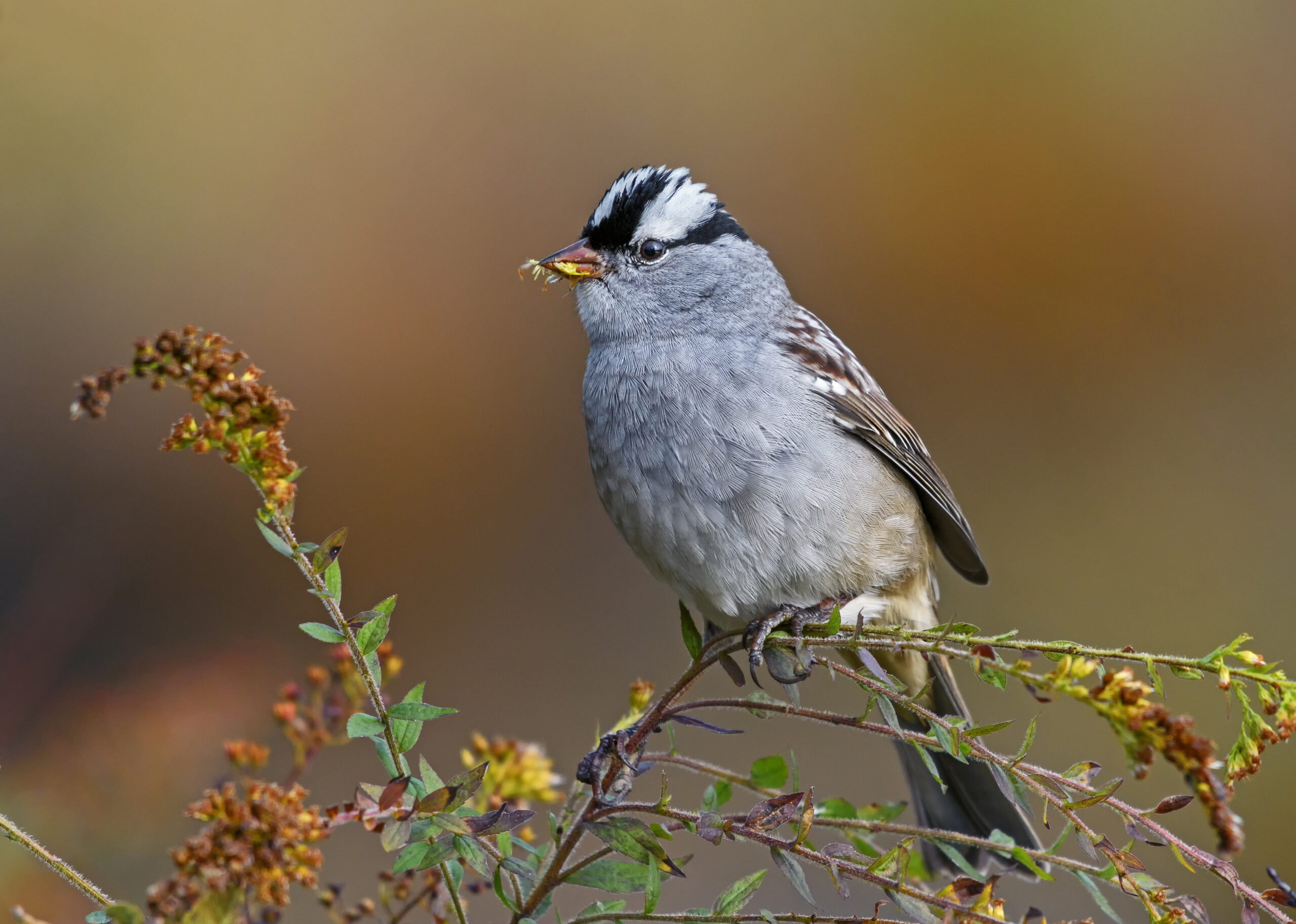Par Allison Manthorne, directrice associée – Programmes de l’Atlantique et stratège – Conservation des insectivores aériens, Oiseaux Canada, et David Browne, Ph. D., vice-président principal – Conservation et Politiques, Oiseaux Canada
Le printemps sera bientôt à nos portes, apportant avec lui les fleurs et le doux son des chants d’oiseaux qui reviennent de leurs lieux d’hivernage. Cependant, comme l’a récemment montré le rapport intitulé L’état des populations d’oiseaux du Canada paru en 2024, le retour des oiseaux des prairies et des insectivores aériens se fera à des niveaux historiquement bas. Malheureusement, de nombreuses menaces sont responsables du déclin des effectifs de ces deux groupes d’oiseaux depuis plus de 40 ans. Une menace relativement récente au sujet de laquelle Oiseaux Canada a tiré la sonnette d’alarme est l’augmentation spectaculaire de l’utilisation de néonicotinoïdes, communément appelés néonics, qui a commencé au début des années 2000.
Les néonics et leur impact sur les oiseaux
Il a été démontré que l’utilisation généralisée des néonics entraîne un déclin des populations d’insectes (article en anglais), ce qui signifie moins de nourriture pour les oiseaux insectivores. De plus, lorsque ces pesticides sont consommés sur des semences agricoles traitées aux néonics, ils produisent des effets troublants sur les comportements et la santé des oiseaux. En fait, plus de 20 ans de preuves de l’impact négatif des néonics sur l’environnement et la faune ont conduit à l’interdiction et à une réglementation plus stricte de leur utilisation dans de nombreuses régions du monde, y compris dans certaines provinces canadiennes. Mais il reste encore beaucoup à faire.

Il a été démontré que lorsque ces pesticides sont consommés sur des semences agricoles traitées aux néonics, ils produisent des effets troublants sur les comportements et la santé des oiseaux. Bruant à couronne blanche. Photo: Melanie Howarth
La réglementation adoucie
En 2018, au vu de ces preuves croissantes d’effets néfastes, l’Agence de réglementation de la lutte antiparasitaire du Canada a achevé son examen scientifique d’un néonic appelé imidaclopride et a proposé l’élimination progressive de toutes les utilisations agricoles et de la majorité des utilisations non agricoles de cet insecticide en raison des risques pour les organismes aquatiques. Cependant, en 2021, après des consultations et une réévaluation des preuves, l’Agence a modifié sa décision, décidant plutôt d’annuler des types d’utilisation spécifiques et de fixer des limites aux quantités pouvant être appliquées. Bien que la décision de 2021 indique que les risques liés à la consommation de semences traitées à l’imidaclopride par les oiseaux et les mammifères ne se sont pas révélés acceptables pour certains scénarios d’exposition, la recommandation a été quand même adoucie. Au lieu d’une élimination progressive, la décision finale a consisté à limiter la concentration de néonics sur les semences. Cela signifie que de grandes quantités de pesticides néonicotinoïdes continuent d’être libérées dans l’environnement, y compris dans le sol et l’eau, et que les oiseaux continuent de consommer des semences enrobées de néonics.
Inquiétudes concernant la réévaluation des risques
À la fin de l’automne dernier, des informations inquiétantes (article en anglais) ont été révélées. L’Agence de réglementation de la lutte antiparasitaire pourrait ne pas avoir pris en compte des preuves scientifiques essentielles concernant les effets des néonics sur l’environnement, et l’influence de l’industrie des pesticides pourrait avoir joué un rôle dans la prise de décision. Oiseaux Canada, en tant qu’organisme à vocation scientifique qui participe activement à l’accroissement des connaissances sur les oiseaux insectivores pour que des décisions intelligentes puissent être prises sur la façon d’éliminer les menaces et de rétablir les populations, prend cette question très au sérieux.
Agir pour protéger les oiseaux
Fin novembre 2024, nous avons joint notre voix à celle d’autres organismes de protection de l’environnement dans une lettre adressée à l’honorable Mark Holland, ministre fédéral de la Santé. Les signataires lui ont demandé de former d’urgence un groupe indépendant chargé d’examiner la réévaluation par le gouvernement des pesticides néonicotinoïdes qui a conduit à modifier la décision de 2021, perpétuant ainsi le risque pour les oiseaux. Le 22 janvier 2025, le ministre a répondu. Il ne s’est pas engagé à prendre des mesures urgentes, mais a laissé la porte ouverte à un examen indépendant et a confirmé que l’Agence collaborerait avec les organismes de protection de l’environnement en vue de répondre à nos préoccupations quant à la transparence de son processus décisionnel et à la confiance du public envers celui-ci.
Vous pouvez contribuer
Alors que les oiseaux reviendront dans nos champs et nos forêts ce printemps, ils auront besoin que nous réduisions les menaces qui pèsent sur leurs habitats et leur progéniture, y compris les risques posés par les pesticides. Cela signifie qu’il faut agir à plusieurs niveaux sur nos propriétés et auprès des autorités en appelant à une réglementation plus stricte.
Vous pouvez agir concrètement pour améliorer les choses. Ce printemps, vous pouvez:
- Communiquer avec vos députés provincial et fédéral ou votre conseil municipal pour leur demander ce qu’ils font pour éliminer les risques que posent les pesticides pour les oiseaux et les autres animaux.
- Rendre votre propriété plus accueillante pour les oiseaux en leur offrant un habitat sécuritaire, entre autres sans végétaux traités aux néonics. Pour obtenir des conseils, rendez-vous à jardinsdoiseaux.ca.
Oiseaux Canada continuera d’appuyer l’élimination progressive des pesticides néonicotinoïdes, qui nuisent aux insectivores aériens et aux autres groupes d’oiseaux.

